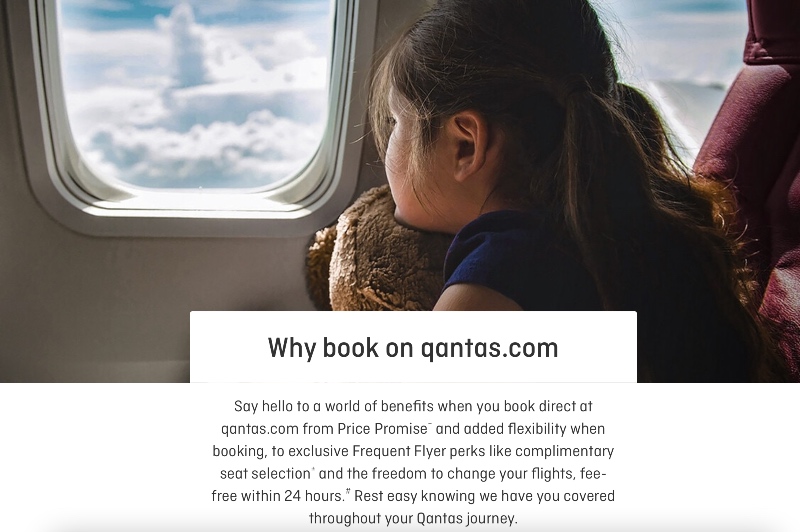Is a Travel Agent Renaissance Coming?

The coronavirus pandemic has sadly forced many bricks-and-mortar travel agencies to close, putting many skilled travel agents out of jobs. To make matters worse for surviving travel agencies, airlines everywhere are now trying to bolster their own recoveries by slashing commissions paid to travel agents.
Yet, as international travel slowly rebounds, experienced travel agents are now as useful as ever.
Travel agents can help clients to navigate complex travel restrictions
Many experienced travellers who would previously have booked their own international travel prior to COVID-19 are now turning to travel agents. There are two very good reasons for this.
Firstly, travel agents can help their clients to navigate the complex and ever-changing international travel requirements in the wake of the pandemic.
Many countries have reopened their borders, but there is now a lot more work involved in booking an overseas trip. Not only do you have to monitor the entry requirements for your destination – which might change – but those of any third countries you transit through en-route.
There have also been large amounts of flight cancellations lately, due to both the pandemic and more recently due to airspace closures associated with the conflict in Ukraine. This adds another layer of complexity when planning travel.
A good travel agent can help their clients to book flights that are actually likely to run, and that can get you to your destination with the least possible hassle. They will know, for example, that international transits through places like Taipei, Shanghai or Brunei are currently not allowed, and that there are extra requirements involved if you want to transit through Bangkok.
If you attempt to DIY your international travel planning, or just book the cheapest flight that appears on Skyscanner, you could end up booking a “ghost flight” that is highly likely to get cancelled. Some online travel agencies (and occasionally airlines themselves) might even sell you an itinerary that is impossible to fly due to border restrictions.
Of course, not all bricks-and-mortar travel agencies share the same level of experience when it comes to booking COVID-19 travel. When choosing a travel agent, it’s worth looking for somebody who has continued operating during the pandemic as they will likely be more knowledgeable on the current travel situation than somebody who was stood down and worked in a different job until last week.

Travel agents can save you the hassle of dealing directly with airlines
The second key benefit of booking with a travel agent who offers good customer service is that it takes the hassle out of dealing directly with airlines that don’t answer the phone or respond in a timely fashion.
For many years, airlines relied on travel agents to promote their products and sell seats on their flights. But increasingly, airlines are now viewing travel agents as a cost rather than a source of revenue.
As airlines try to recover from COVID-19 by cutting costs, many have slashed the commissions paid to travel agents. For example, Qantas will soon cut the base commission paid to travel agents for selling international tickets from 5% to 1%. Qantas already pays no commission to travel agents for selling domestic and trans-Tasman tickets.
Air New Zealand recently announced similar reductions to travel agent commissions.
Instead of paying commission to a “middle man”, airlines nowadays want to own their customers. So they are doing everything they can to encourage customers to book directly with the airline. This is why, for example, Qantas recently added extra benefits like free seat selection and free cancellation within 24 hours for customers who book flights directly on Qantas.com.

Yet, many airlines – including but not limited to Qantas – don’t seem to have enough staff at the moment to actually service all of these customers. If you’ve tried calling Qantas recently to book or change a flight, and you don’t have Platinum or Platinum One status, you probably would have realised this by around the third hour of waiting on hold.
While Qantas’ customer service on the ground is among the worst in the industry at the moment, this problem also affects other airlines including Singapore Airlines, British Airways, Finnair and Air Canada which have all had very long call centre wait times lately.
If you are able to book your flights online, and there are no changes to your flights, you’ll probably be fine. But if the airline changes or cancels any of your flights, and you need to speak to somebody to fix the issue, this could take hours of your valuable time.
By booking with a travel agent who is responsive and provides good service, they’ll deal with this hassle for you. Even if they charge a small fee for their service, it may be worth it for the time saving to you.
In 2022, travel agencies are in a tough business
Ironically, despite the enormous value they can offer to travellers in the current climate, many travel agencies have been struggling to make turn a profit lately.
The lack of travel demand during the pandemic clearly hasn’t helped. As airlines try to claw back commissions, one of the major sources of income for travel agencies is also being taken away.
In trying to sell the upcoming 80% reduction in commissions to travel agents, Qantas said:
It is expected this change will likely accelerate the growing industry trend towards a “fee for service” model that has already taken place in many markets overseas and among several agency chains in Australia. This compensates travel agents for the added value and bespoke service they provide customers beyond the logistics of booking, particularly for managing complex itineraries.
Travel agencies do earn commission from selling things other than flights, such as hotel bookings, tour packages and travel insurance. But increasingly, travel agents will need to start charging (or increase) base-level service fees in order to survive and thrive.
This means customers may ultimately soon have a choice: Book direct with the airline, or pay a small additional fee for someone else to help you.
Given the complexity of managing international travel at the moment, and the inability of some airlines to provide basic customer service, many customers may indeed be prepared to pay a little more for personalised service from an experienced travel agent. Despite the many challenges their industry is facing, good travel agents should be able to capitalise on this silver lining.
You can leave a comment or join the discussion on the Australian Frequent Flyer forum.


Community Comments
Loading new replies...
Join the full discussion at the Australian Frequent Flyer →